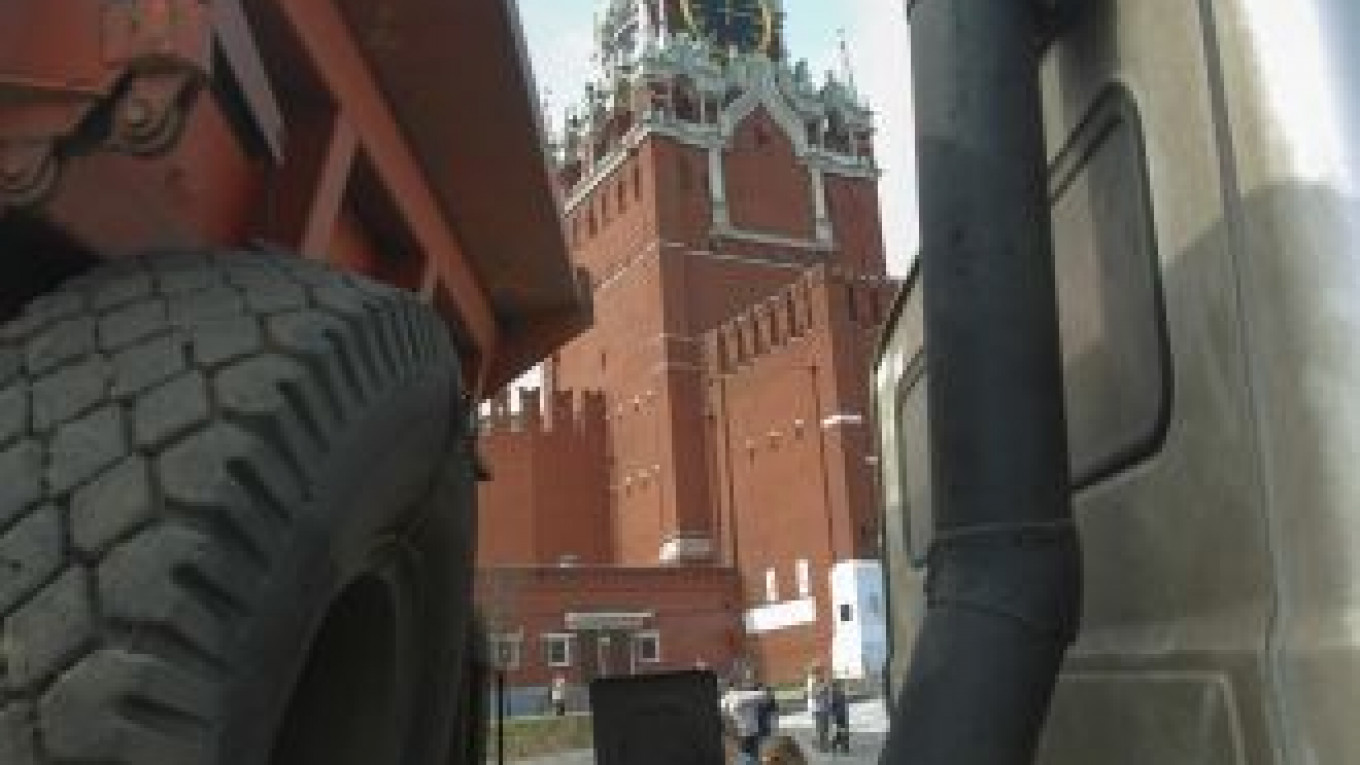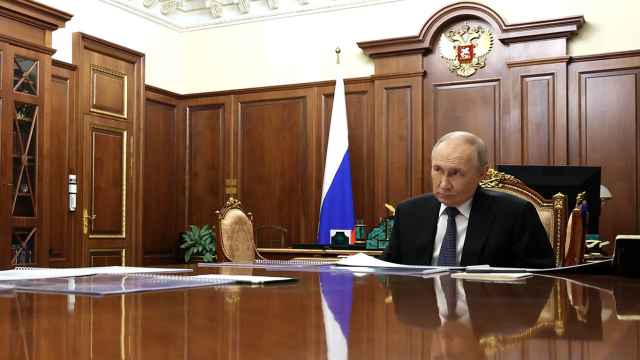The number of commercial trucks on Moscow’s roads could be reduced dramatically if the city’s Transportation Department wins approval for its plan to curtail when and where such vehicles can drive, potentially cutting down on traffic congestion in the notoriously snarled capital.
The Transportation Department has proposed expanding the zone in which trucks weighing more than 1 ton are banned from the roads during the day and evening. The expansion covers the area within the Garden Ring to include nearly all territory within the Third Ring Road, Vedomosti reported Friday.
This would mean no truck traffic from 7 a.m. till 10 p.m. as far out as the Rizhsky Vokzal train station in the city’s north and the Leninsky Prospekt metro station in the south.
The program would also take many large trucks off the road completely by decreasing the size of loads allowed within the expanded area from the current 7 tons down to 3.5 tons, Vedomosti cited city officials as saying.
The proposal’s authors said the ban on vehicles of more than 3.5 tons would decrease the number of trucks in central areas from roughly 150,000 per day to a range of 30,000 to 50,000 per day, Vedomosti reported. It wasn’t clear how the department came up with those figures.
Mikhail Blinkin, a transportation expert and professor at Moscow’s Higher School of Economics, said a key issue is that there are businesses that need such trucks to be on the roads during regular hours.
“The main question is why are they coming here,” Blinkin said. The city government “needs to resolve the problem” of having industry within the Third Ring Road, he said.
Businesses that depend on deliveries from big trucks include gas stations and shopping centers. But many retail outlets switched to nighttime deliveries and smaller vehicles following the Garden Ring restrictions, Ilya Belonovsky, executive director of the Retail Trade Companies Association, told Vedomosti.
Yury Shevchenko, DHL’s vice president for operations in the CIS and Eastern Europe, said that even before the earlier truck limitations, its Moscow operations were already using cars fitted for courier use.
Moscow’s narrow side streets were one factor in that decision, as was DHL’s expectation that City Hall would eventually further restrict traffic in the city, Shevchenko said.
A Message from The Moscow Times:
Dear readers,
We are facing unprecedented challenges. Russia's Prosecutor General's Office has designated The Moscow Times as an "undesirable" organization, criminalizing our work and putting our staff at risk of prosecution. This follows our earlier unjust labeling as a "foreign agent."
These actions are direct attempts to silence independent journalism in Russia. The authorities claim our work "discredits the decisions of the Russian leadership." We see things differently: we strive to provide accurate, unbiased reporting on Russia.
We, the journalists of The Moscow Times, refuse to be silenced. But to continue our work, we need your help.
Your support, no matter how small, makes a world of difference. If you can, please support us monthly starting from just $2. It's quick to set up, and every contribution makes a significant impact.
By supporting The Moscow Times, you're defending open, independent journalism in the face of repression. Thank you for standing with us.
Remind me later.






